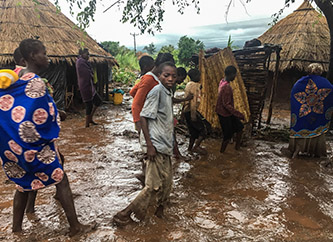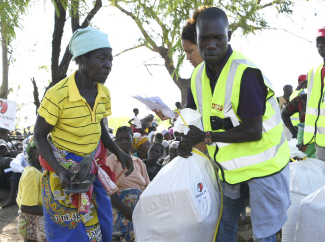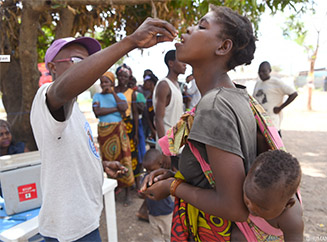consent_cookie
Duración: 1 year
Stores the user's cookie consent state
12-03-2020
During the night of March 14-15, 2019, Mozambique, Malawi and Zimbabwe were victims of what the UN considered as "the worst storm ever to happen in the Southern Hemisphere": Cyclone Idai, which affected more than 2.6 millions of people.
The province of Sofala, in the center of the country, and the city of Beira, were devastated by torrential rains and gusts of wind up to 220 km / h, causing hundreds of thousands of victims, homeless people and extensive material damage, including the loss of crops and the destruction of schools.
This week marks the anniversary of this terrible catastrophe. A drama that also affected one of the poorest countries on Earth, with the ninth worst index of human development.
A few days after the catastrophe, Humana launched the 'HELP MOZAMBIQUE' campaign in order to raise funds to be used for the distribution of clothing, food, water purification and medical assistance, as part of the Assistance and Emergency Campaign launched by ADPP Mozambique, local partner of the Foundation.
Back to classrooms at ADPP Mozambique schools
One year after this phenomenon, the consequences of which have been increased due to the heavy floods registered last month in Sofala, Mozambique still has schools without roofs. Only 10% of the country's classrooms affected by Idai have been rehabilitated. However, students from ADPP Mozambique schools are already attending classes normally, although the beginning of the school year had to be postponed.
ADPP has also provided support to the victims of the February floods, distributing basic products and offering assistance to 1,900 displaced families as an emergency response to this humanitarian crisis.
Recovery of agricultural activity after loss of crops
The ADPP Mozambique Farmers Club program, which aims to help small farmers increase their production and improve their income, ended the year with a positive balance, despite the fact that all crops were lost to the cyclone. The organization's data shows that if a farmer previously produced 1,100 kg / ha of rice, he currently produces an average of 3,500 kg / ha, more than three times the initial production, thanks to the efforts carried out.
Emílio Pelena, ADPP Mozambique Agricultural Technician in the Nhamatanda district, in Sofala, says that the area was severely punished by Idai: "The population had to abandon their homes and seek refuge." Fortunately, after a year since the tragedy, we can see that the inhabitants of the most affected regions have already rebuilt their homes. Furthermore, although the consequences are still evident, the strength and determination of the Mozambican people have highlighted the population's resilience and resilience in the face of a natural catastrophe of this caliber.


